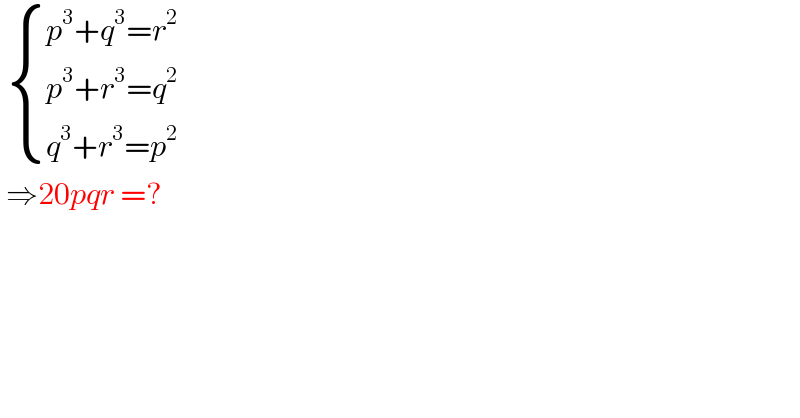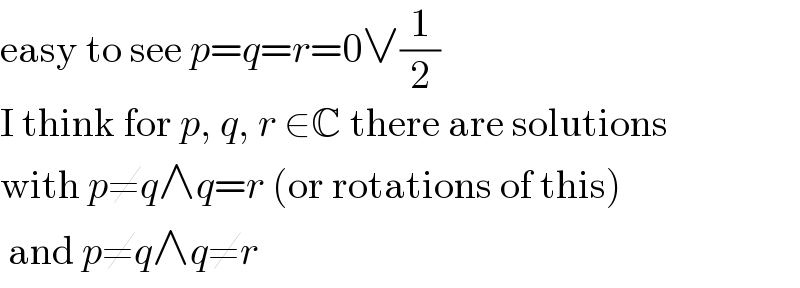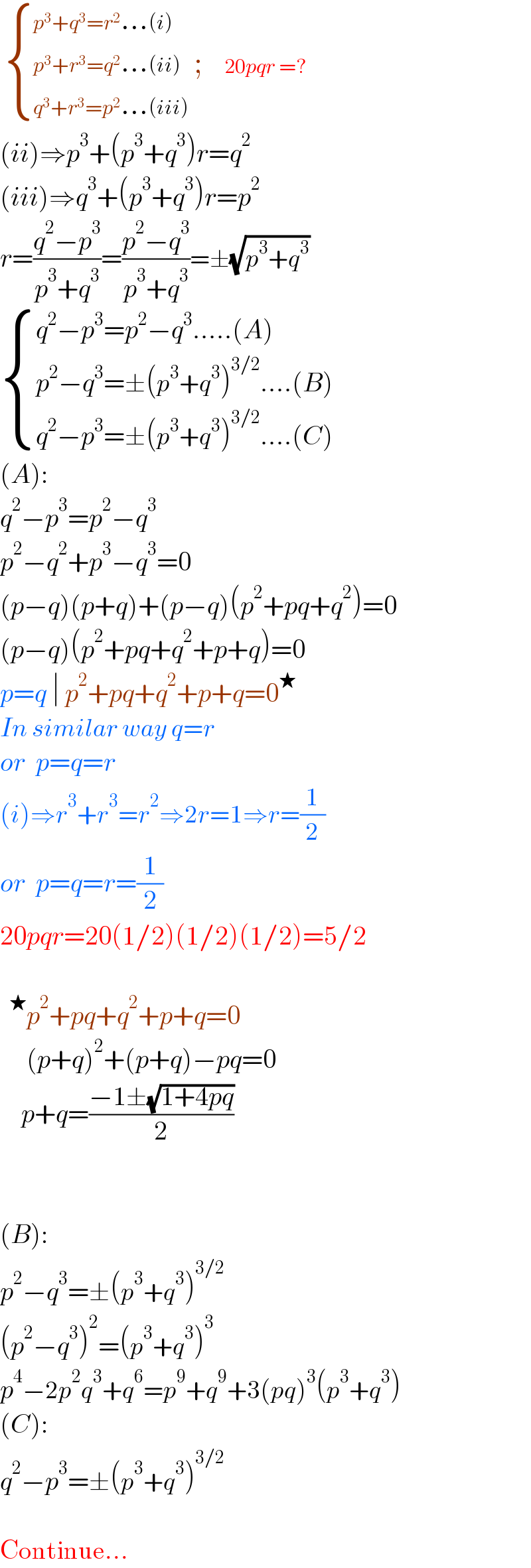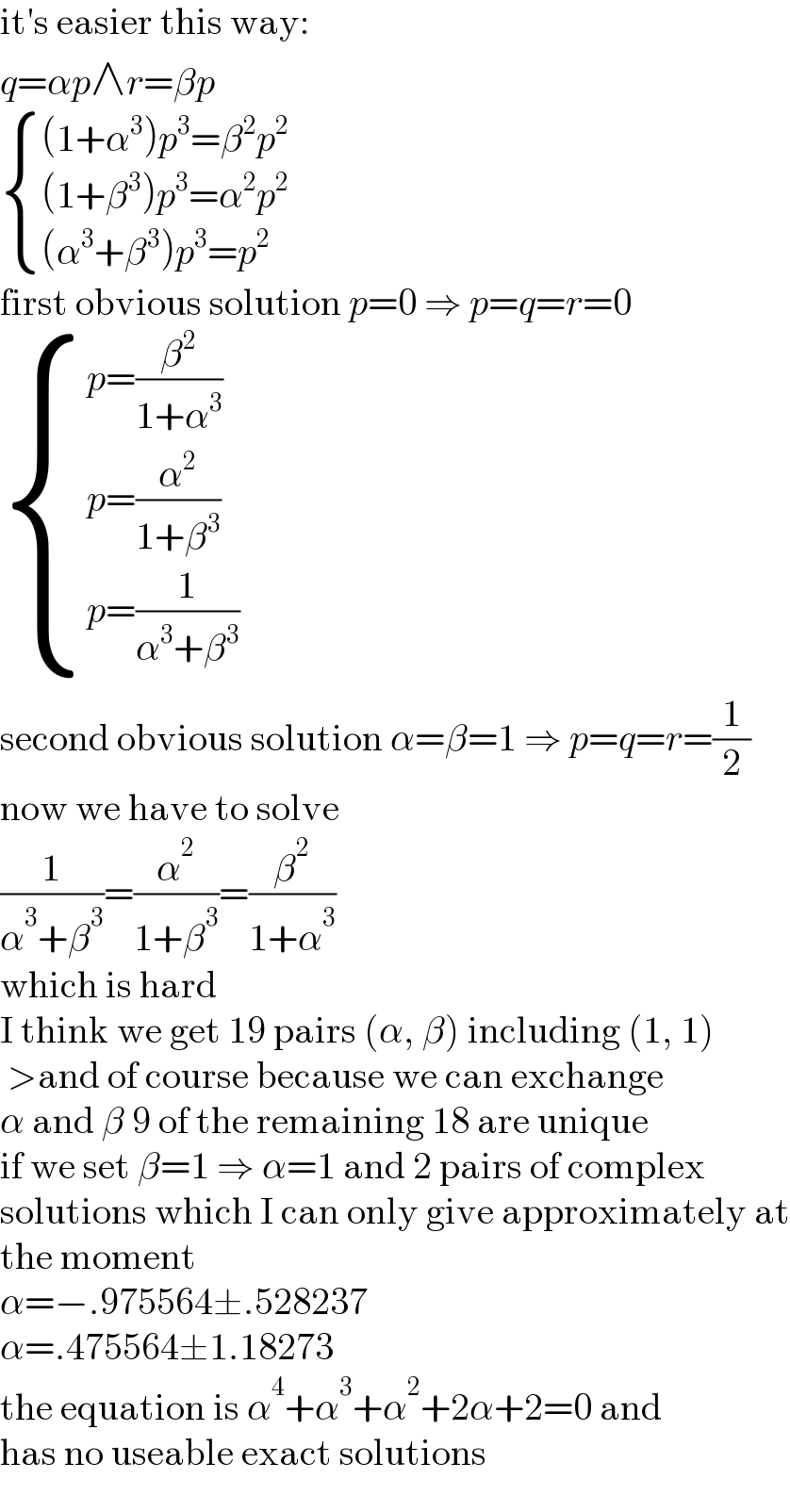
Question and Answers Forum
Question Number 176636 by cortano1 last updated on 23/Sep/22

Commented by Frix last updated on 23/Sep/22

Commented by Frix last updated on 23/Sep/22

Answered by BaliramKumar last updated on 23/Sep/22

Commented by mr W last updated on 23/Sep/22

Answered by Rasheed.Sindhi last updated on 24/Sep/22

Commented by Frix last updated on 24/Sep/22

Commented by Rasheed.Sindhi last updated on 24/Sep/22

Commented by Frix last updated on 24/Sep/22
![I get (α, β)= (1, β=α) (.475564±1.18273i,1) (.384646±.923064i, −.500000∓.333321i) [not sure if −(1/2)] (.292652±.727828i, β=α) (−.792652±.429196i, β=α) (−.975564±.528237i, 1) (−1.38465±.923064i, β=conj(α))](Q176669.png)
Commented by Tawa11 last updated on 25/Sep/22

